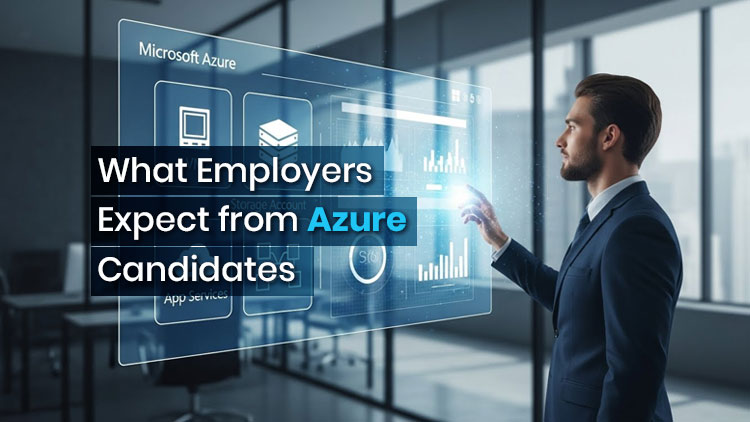
Can Anyone Learn DevOps? A Complete Guide for Aspiring Professionals

Can Anyone Learn DevOps? A Complete Guide for Aspiring Professionals
Introduction
In today’s rapidly evolving tech landscape, DevOps plays a vital role in accelerating software development and streamlining deployment by uniting development and IT operations. The exciting part? DevOps is accessible to anyone willing to learn—with the right approach, foundational skills, and guided resources. Although VERSAtile Reads doesn’t provide direct DevOps training, it offers powerful certification tools such as the Enterprise Cloud Navigator (ECN) and Professional Quality Specialist (PQS). These programs cultivate essential cloud infrastructure and quality management skills—both critical for thriving in any DevOps-related role. Begin your journey with VERSAtile Reads and build a strong foundation for a future-ready career in IT.
If you’re ready to take the first step toward mastering DevOps, VERSAtile Reads has you covered with concise Exam Cram Notes and trustworthy Practice Test Series. These resources are designed to help you grasp core DevOps concepts quickly and prepare effectively for certification exams, while also gaining practical insights into automation, infrastructure, and cloud deployment techniques.
What is DevOps?
To understand if anyone can learn DevOps, we first need to define what it is and why it’s crucial in today’s tech landscape. DevOps is a set of practices that unites software development and IT operations to improve collaboration and productivity by automating infrastructure, workflows, and continuously measuring application performance.
DevOps is rooted in several core principles:
- Collaboration: DevOps fosters a collaborative environment between developers and operations teams, eliminating the silos that traditionally existed in software development.
- Automation: Repetitive tasks such as testing, deployment, and monitoring are automated to improve efficiency and reduce human error.
- Continuous Integration and Continuous Deployment (CI/CD): Software is continuously integrated, tested, and deployed to ensure that features are released regularly and with minimal disruption.
- Monitoring and Feedback: Continuous monitoring of applications allows for quick identification of performance issues, ensuring proactive fixes rather than reactive troubleshooting.
DevOps practices have become essential for companies looking to stay competitive in the digital age. The ability to release software quickly, reliably, and securely can make or break a company’s success. Hence, mastering DevOps can dramatically boost your career.

Is DevOps Learnable by Anyone?
Absolutely. DevOps is a methodology that welcomes individuals from all walks of life, regardless of their initial expertise. Here’s why:
- Wide Range of Skill Levels: DevOps practices can be adopted by beginners, intermediate professionals, and seasoned experts. DevOps offers a range of learning curves—starting from simple automation tools to complex orchestration systems like Kubernetes and containerized applications.
- Cross-Disciplinary Nature: DevOps is not restricted to a particular role. People from various technical and non-technical backgrounds can enter the field. Whether you come from a software development, system administration, networking, security, or even a project management background, there’s a place for you in DevOps.
- Growing Demand for DevOps Professionals: As more organizations embrace DevOps to improve their operations, the demand for skilled DevOps professionals continues to rise. Whether you’re just starting in IT or already have a background in development or operations, the DevOps field offers lucrative opportunities for career growth.
The Path to Learning DevOps
Learning DevOps is a gradual process that involves mastering several foundational concepts and technologies. Here’s a step-by-step guide to help you get started:
1. Understand the Fundamentals of IT and Programming
Before diving into DevOps-specific tools and practices, it’s essential to have a solid understanding of the basics. Here are some areas you should focus on:
- Operating Systems (OS): Most DevOps tools interact with the operating system (primarily Linux). Learn how to use Linux, understand file systems, permissions, and commands.
- Networking Basics: Understanding how networking works—such as IP addresses, subnets, DNS, and HTTP—is crucial since DevOps practices often involve managing web servers, load balancers, and network configurations.
- Scripting Languages: Scripting is at the heart of DevOps automation. Learn Bash, Python, or PowerShell for automating tasks and handling infrastructure as code (IaC).
- Version Control: Git is the most widely used version control system in DevOps. Familiarize yourself with Git commands, repositories, and workflows to manage code changes and collaborate with others.
2. Learn the Core DevOps Practices
Once you’re comfortable with the fundamentals, move on to understanding the core DevOps practices. These include:
- Continuous Integration (CI): CI is the practice of automatically integrating code changes into a shared repository multiple times a day. Familiarize yourself with CI tools like Jenkins, CircleCI, and Travis CI.
- Continuous Delivery (CD): CD focuses on automatically deploying applications to production environments once code is integrated and tested. Learn how to set up pipelines that deploy code automatically after it passes all stages of testing.
- Automation: Automating manual tasks like testing, configuration management, and deployment is a fundamental aspect of DevOps. Tools like Ansible, Chef, and Puppet are commonly used for automating infrastructure management.
- Monitoring and Logging: Continuous monitoring ensures the health of systems. Learn tools like Prometheus, Grafana, and ELK Stack for monitoring, logging, and visualizing application performance.
3. Master Containerization and Orchestration
Containerization is a game-changer in the world of DevOps. Understanding how to package and manage applications in containers is essential. Here’s how you can start:
- Docker: Docker allows you to package an application and its dependencies into a container, making it easier to deploy and manage across different environments. Learn Docker fundamentals, such as creating Dockerfiles, working with Docker images, and managing containers.
- Kubernetes: Kubernetes is a powerful orchestration tool that automates the deployment, scaling, and management of containerized applications. It is crucial to understand Kubernetes components like Pods, Services, Deployments, and ConfigMaps.
4. Get Comfortable with Cloud Platforms
DevOps and cloud computing are tightly intertwined. Major cloud service providers like AWS, Azure, and Google Cloud Platform (GCP) offer tools that enable efficient DevOps practices. Here’s what to focus on:
- AWS: Learn about Amazon EC2, S3, Lambda, and other AWS services to deploy and manage applications in the cloud. AWS offers several certifications, such as the AWS Certified DevOps Engineer certification, which can boost your credentials.
- Azure and GCP: Azure DevOps tools and Google Cloud Platform also offer powerful capabilities for DevOps teams. Understand how to work with infrastructure as code (IaC) tools like Terraform and Azure Resource Manager (ARM) templates.
5. Focus on Security (DevSecOps)
Security is paramount in DevOps. DevSecOps is the practice of embedding security into every phase of the software development lifecycle. Learn how to:
- Implement security testing in CI/CD pipelines.
- Use tools like OWASP ZAP, Snyk, and Fortify to identify vulnerabilities.
- Automate compliance checks and integrate them into your development process.
The Benefits of Learning DevOps
Learning DevOps is not only beneficial for your career but also for the organizations you work with. Here are some of the key benefits:
- Improved Efficiency: DevOps automates repetitive tasks, saving time and reducing human error. As a result, developers and operations teams can focus on higher-level tasks, improving overall efficiency.
- Faster Time to Market: With CI/CD pipelines and continuous automation, software is developed and deployed faster, which means products reach the market quicker, helping businesses stay competitive.
- Increased Collaboration: DevOps breaks down the barriers between development and operations teams, fostering better collaboration, communication, and shared goals.
- Higher Job Satisfaction: Professionals working in a DevOps environment experience greater job satisfaction due to the automation of mundane tasks and the opportunity to work on exciting technologies.
DevOps Certifications to Boost Your Career
DevOps certifications provide credibility and validate your skills in the industry. Here are some certifications you should consider:
- AWS Certified DevOps Engineer – Professional: This certification validates your ability to implement DevOps practices on AWS. It’s recognized as one of the top DevOps certifications in the industry.
- Certified Kubernetes Administrator (CKA): Kubernetes is a core component of many DevOps environments. This certification demonstrates your ability to manage containerized applications using Kubernetes.
- Docker Certified Associate (DCA): If you’re looking to specialize in Docker, this certification is for you. It validates your expertise in containerization and container orchestration.
- Microsoft Certified: Azure DevOps Engineer Expert: This certification showcases your ability to design and implement DevOps practices using Microsoft Azure.
These certifications are widely recognized and can significantly boost your career prospects in DevOps.
What People Can Learn Under DevOps at VERSAtile Reads
At VERSAtile Reads, we believe in equipping aspiring DevOps professionals with not just hands-on training and expert-led courses, but also powerful self-study resources to reinforce their learning. To help you stay on top of your DevOps game, we recommend the following books as part of your learning journey:
- Terraform Associate Certification Exam: 350 Questions for Guaranteed Success (1st Edition – 2024)
- Terraform Associate Certification Exam Cram Essential Exam Success (1st Edition – 2024)
- CKA: Certified Kubernetes Administrator Exam Prep – 350 Practice Questions (1st Edition)
- CKA: Certified Kubernetes Administrator Essentials – Fast Track to Exam Success (1st Edition)
These books complement the foundational DevOps roadmap, hands-on labs, and guided certification paths offered at VERSAtile Reads. Whether you’re just starting or prepping for advanced certifications, our curated learning resources ensure you’re always a step ahead.
Conclusion
DevOps is a dynamic, evolving field that offers exciting career opportunities for anyone willing to learn and grow. Whether you’re just starting or looking to expand your existing skill set, there’s always a way into DevOps. By following the steps outlined in this guide and pursuing relevant certifications, you can build a rewarding career in one of the most sought-after domains in technology. The resources available today, from courses to certifications, make learning DevOps more accessible than ever before. Platforms like VERSAtile Reads provide comprehensive training that equips you with the skills needed to succeed in the field.
FAQS
1. What skills do we need to get started with DevOps?
To start with DevOps, learn the basics of Linux, Git, and scripting languages like Python or Bash. As you advance, explore cloud platforms, automation tools, containerization, CI/CD pipelines, IaC, and monitoring solutions.
2. Can we learn DevOps without a technical background?
Yes, you can learn DevOps without a formal technical background. Beginner-friendly courses from platforms like VERSAtile Reads help you build a strong foundation and progress to advanced practices.
3. How long does it take to learn DevOps?
Learning DevOps can take several months to a year, depending on your background and goals. Structured courses from VERSAtile Reads can accelerate the process with hands-on guidance from experts.
- Published Date:



